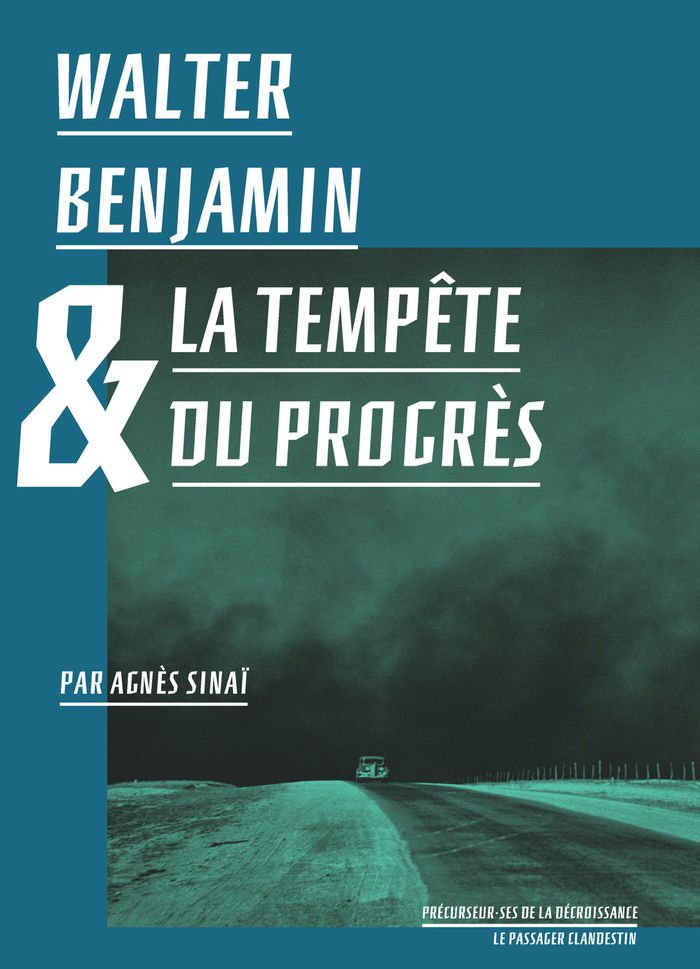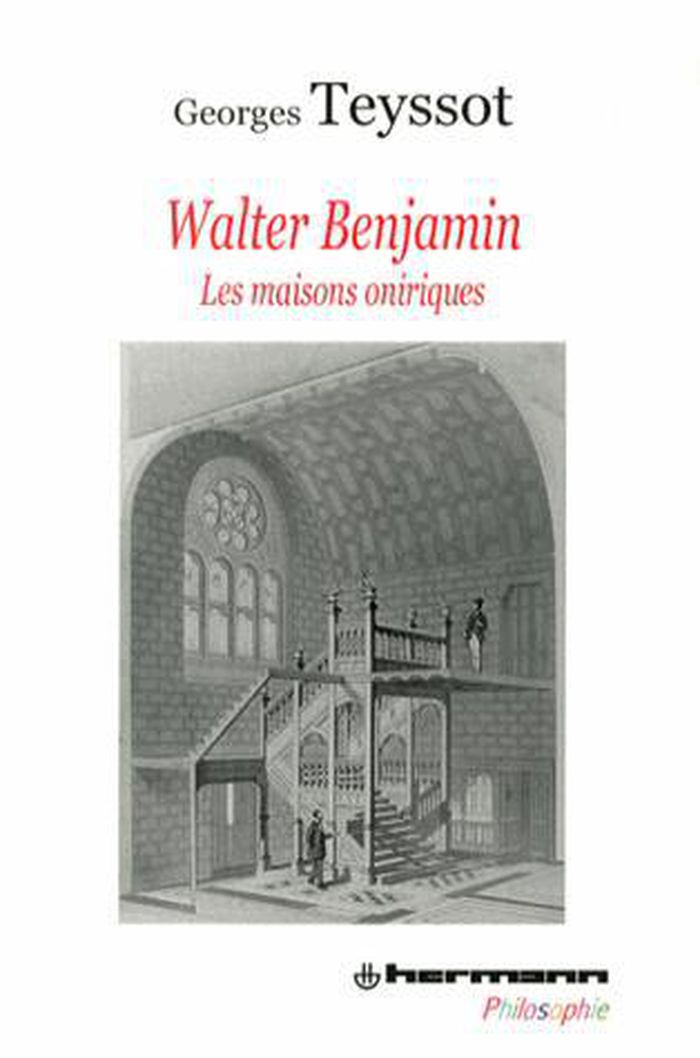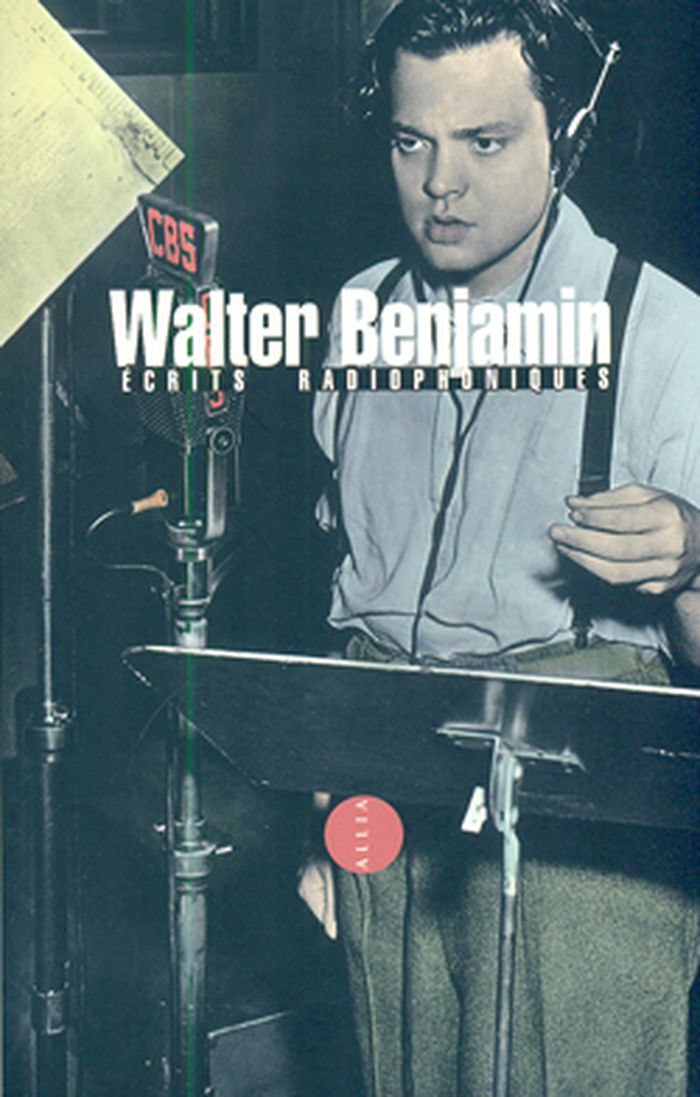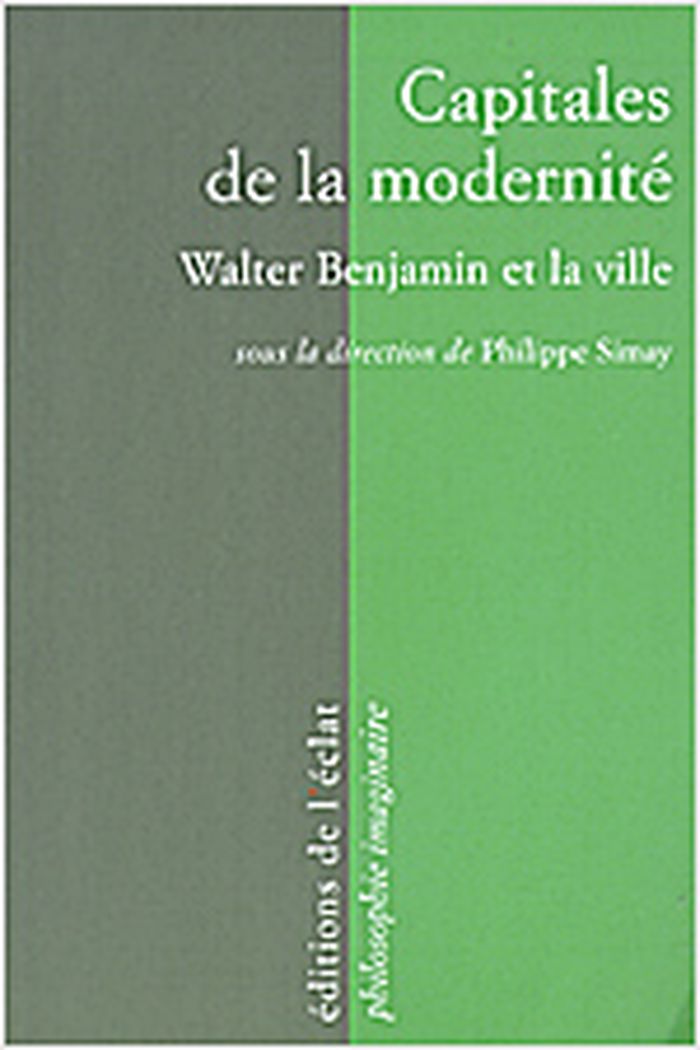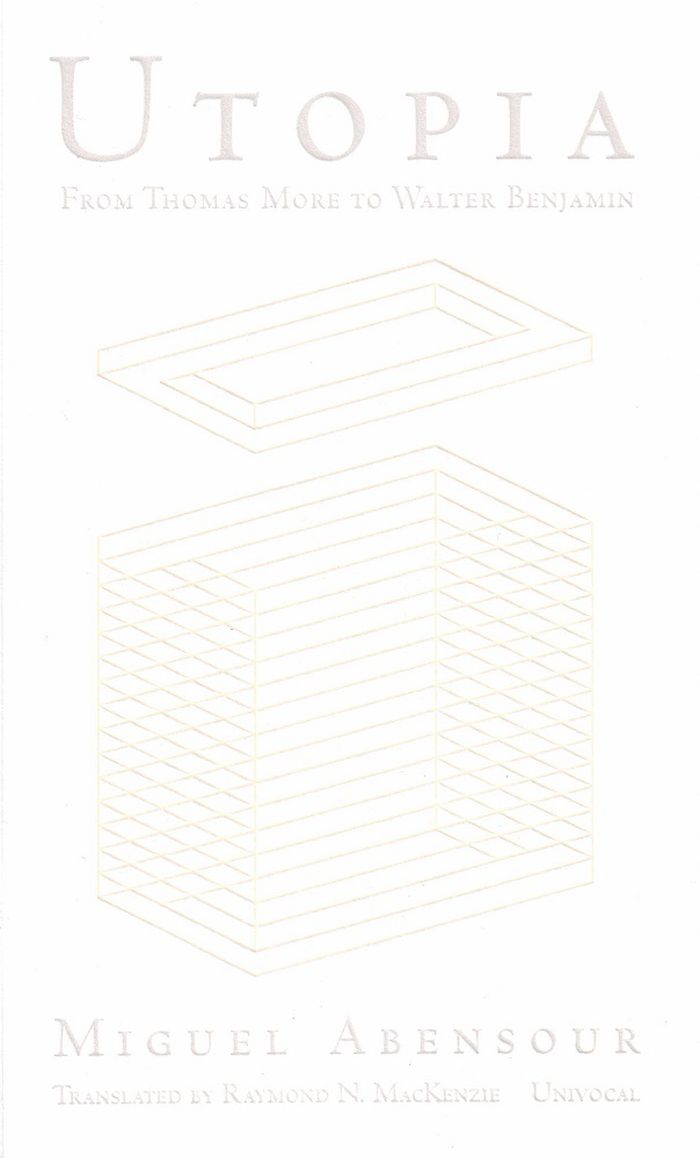$18.95
(disponible sur commande)
Résumé:
Dévoilant le fétichisme de la marchandise, Benjamin analyse comment le capitalisme marque la culture et les imaginaires. Refus de l’utile, droit à la flânerie, renversement révolutionnaire, harmonie entre nature et humanité, sont selon lui autant de ferments d’utopies pour résister à l’uniformisation du monde. À l’heure où la course au progrès est plus que jamais(...)
Walter Benjamin & la tempête du progrès
Actions:
Prix:
$18.95
(disponible sur commande)
Résumé:
Dévoilant le fétichisme de la marchandise, Benjamin analyse comment le capitalisme marque la culture et les imaginaires. Refus de l’utile, droit à la flânerie, renversement révolutionnaire, harmonie entre nature et humanité, sont selon lui autant de ferments d’utopies pour résister à l’uniformisation du monde. À l’heure où la course au progrès est plus que jamais d’actualité, Agnès Sinaï met en lumière toute l’actualité du penseur Walter Benjamin.
Théorie/ philosophie
livres
$22.95
(disponible sur commande)
Résumé:
Walter Benjamin n'a jamais cru que pratiquer la "critique de l'art" dispensât d'être philosophe. Au contraire, la critique n'a d'autre lieu que la philosophie sous sa forme la plus épurée. Les diverses contributions de ce recueil donne une image très cohérente et homogène de la personnalité et de la pensée de Benjamin.
Théorie de l’architecture
janvier 2006, Paris
Walter Benjamin : critique philosophique de l'art
Actions:
Prix:
$22.95
(disponible sur commande)
Résumé:
Walter Benjamin n'a jamais cru que pratiquer la "critique de l'art" dispensât d'être philosophe. Au contraire, la critique n'a d'autre lieu que la philosophie sous sa forme la plus épurée. Les diverses contributions de ce recueil donne une image très cohérente et homogène de la personnalité et de la pensée de Benjamin.
livres
janvier 2006, Paris
Théorie de l’architecture
$36.00
(disponible sur commande)
Résumé:
À la recherche des « images de pensée » (Denkbilder), Walter Benjamin instaure un procédé efficace de correspondance entre rêve et architecture, une idée qu'il tenait du surréalisme. On a pu parler d'oniromancie à l'envers, car son point de départ est matériel : il part des choses, des objets, des lieux, des endroits, des atmosphères pour mettre en lumière leurs(...)
Walter Benjamin : les maisons oniriques
Actions:
Prix:
$36.00
(disponible sur commande)
Résumé:
À la recherche des « images de pensée » (Denkbilder), Walter Benjamin instaure un procédé efficace de correspondance entre rêve et architecture, une idée qu'il tenait du surréalisme. On a pu parler d'oniromancie à l'envers, car son point de départ est matériel : il part des choses, des objets, des lieux, des endroits, des atmosphères pour mettre en lumière leurs caractères irrationnels. Une telle théorie décrit précisément les relations fantastiques se créant par l'assemblage d'articles luxueux, d'objets d'art anciens, de pièces de collection, de bibelots passés de mode, de colifichets frivoles, de fragments dépareillés, d'images surannées ou encore d'instruments tombés en désuétude. Tout cela forme un milieu peuplé d'objets et de gens, capable d'engendrer un paysage onirique et conduisant à une expérience agoraphobique, intériorisée. Ici, le spectateur est à la recherche du temps perdu, et les objets sont comme des alambics filtrant la durée. Procédant à la radiographie de la « maison de rêve » (Traumhaus), Benjamin offre un catalogue précis des meubles oniriques qui en hantent les espaces clos.
Théorie de l’art
livres
Description:
vi, 254 pages ; 23 cm
Chicago : University of Chicago Press, 1992.
Theories of translation : an anthology of essays from Dryden to Derrida / edited by Rainer Schulte and John Biguenet.
Actions:
Exemplaires:
Description:
vi, 254 pages ; 23 cm
livres
Chicago : University of Chicago Press, 1992.
Écrits radiophoniques
$27.95
(disponible sur commande)
Résumé:
L'espace radiophonique, non comme outil de vulgarisation mais pour l'intérêt qu'il suscite auprès d'un large public, devient pour Benjamin le lieu par excellence d'application pratique de ses réflexions sur les moyens de reproductibilité technique et la popularisation de la culture. Il esquisse ici une théorie de la radio, comme le montre un ensemble de lettres et de(...)
Écrits radiophoniques
Actions:
Prix:
$27.95
(disponible sur commande)
Résumé:
L'espace radiophonique, non comme outil de vulgarisation mais pour l'intérêt qu'il suscite auprès d'un large public, devient pour Benjamin le lieu par excellence d'application pratique de ses réflexions sur les moyens de reproductibilité technique et la popularisation de la culture. Il esquisse ici une théorie de la radio, comme le montre un ensemble de lettres et de textes inédits en français qui viennent compléter cette édition. Un nouveau visage de Walter Benjamin, ou plutôt une voix nouvelle, se fait ici entendre. Avec humour, un talent incontestable de metteur en scène et une verve de dialoguiste, Walter Benjamin montre que la radio est un outil, littéraire, pédagogique et culturel, d'exception.
Théorie/ philosophie
livres
Description:
461 pages : illustrations ; 25 cm
Princeton : Princeton University Press, [2019], ©2019
A history of art history / Christopher S. Wood.
Actions:
Exemplaires:
Description:
461 pages : illustrations ; 25 cm
livres
Princeton : Princeton University Press, [2019], ©2019
$47.95
(disponible sur commande)
Résumé:
"The Arcades Project" (1927–40), the monumental unfinished work of cultural criticism by Walter Benjamin, is the German philosopher’s effort to comprehend urban modernity through the 19th-century Parisian shopping arcade. "The Arcades: contemporary art and Walter Benjamin" combines artworks with archival materials and poetic interventions to form an original, multifaceted(...)
The Arcades: contemporary art and Walter Benjamin
Actions:
Prix:
$47.95
(disponible sur commande)
Résumé:
"The Arcades Project" (1927–40), the monumental unfinished work of cultural criticism by Walter Benjamin, is the German philosopher’s effort to comprehend urban modernity through the 19th-century Parisian shopping arcade. "The Arcades: contemporary art and Walter Benjamin" combines artworks with archival materials and poetic interventions to form an original, multifaceted response to this collagelike cultural text. Jens Hoffmann astutely pairs works by thirty-six well-known and emerging artists, including Lee Friedlander, Andreas Gursky, Pierre Huyghe, and Cindy Sherman, with the thirty-six “Convolutes,” or themes, in Benjamin’s text. Bound into the main volume is a graphic novelette, from the imagination of Vito Manolo Roma, of Benjamin’s dream the night before he committed suicide while fleeing the Nazis. Scholarly essays by Hoffmann and Caroline A. Jones, texts selected by the poet Kenneth Goldsmith, reproductions of Benjamin’s handwritten notes, and a list of the main Paris arcades discussed by him round out this extraordinary publication.
$34.95
(disponible en magasin)
Résumé:
Les enjeux urbains de la pensée de Walter Benjamin se situent dans un entre-deux-villes où s'est joué le sort d'une modernité contradictoire : Paris, capitale du XIXe siècle. A la question : " Comment habiter le moderne ? ", Benjamin répond par une étonnante philosophie de l'architecture, où se mêlent exils et souvenirs d'enfance, flânerie et pratiques révolutionnaires,(...)
Capitales de la modernité : Walter Benjamin et la ville
Actions:
Prix:
$34.95
(disponible en magasin)
Résumé:
Les enjeux urbains de la pensée de Walter Benjamin se situent dans un entre-deux-villes où s'est joué le sort d'une modernité contradictoire : Paris, capitale du XIXe siècle. A la question : " Comment habiter le moderne ? ", Benjamin répond par une étonnante philosophie de l'architecture, où se mêlent exils et souvenirs d'enfance, flânerie et pratiques révolutionnaires, transparence et opacité, cinéma et expertise sociale. C'est à cet inventaire que ce volume veut contribuer, constituant la ville comme " centre de gravité " de la pensée benjaminienne, vers lequel convergent ses autres architectures linguistiques, esthétiques ou politiques.
Théorie de l’urbanisme
livres
Description:
595 pages, 2 unnumbered pages : illustrations, maps, plans ; 23 cm
New York : Allworth Press, [2022], ©2022
The Black experience in design : identity, expression & reflection / Anne H. Berry, Kareem Collie, Penina Acayo Laker, Lesley-Ann Noel, Jennifer Rittner, Kelly Walters.
Actions:
Exemplaires:
Description:
595 pages, 2 unnumbered pages : illustrations, maps, plans ; 23 cm
livres
New York : Allworth Press, [2022], ©2022
$43.00
(disponible en magasin)
Résumé:
For the French philosopher Miguel Abensour, the fictional genre of utopia has provided thinkers and artists a fertile ground to explore for the past 500 years, both as a way to imagine new emancipatory practices of shared existence and as a tyrannical imposition of power. Here, Abensour’s project is to examine the idea of utopia in two different but powerful moments in(...)
Utopia, from Tomas More to Walter Benjamin
Actions:
Prix:
$43.00
(disponible en magasin)
Résumé:
For the French philosopher Miguel Abensour, the fictional genre of utopia has provided thinkers and artists a fertile ground to explore for the past 500 years, both as a way to imagine new emancipatory practices of shared existence and as a tyrannical imposition of power. Here, Abensour’s project is to examine the idea of utopia in two different but powerful moments in its trajectory: first, utopia’s beginning, when Thomas More sought a path for justice through a world in transformation, and second, when utopia faced its greatest danger, the moment that Walter Benjamin called “catastrophe.”
Théorie/ philosophie
